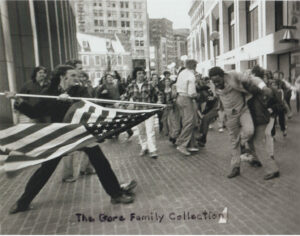The Fight for Desegregation
By Dannie D. Gore, Sr.
|
School desegregation and busing were one of the most contentious civil rights issues in the 1970s.
|
|
In 1971, in the Swann v. Mecklenburg Board of Education decision, the Supreme Court mandated the use of busing to achieve greater integration of public schools.
|
|
On June 21, 1974, U.S. District Court Judge W. Arthur Garrity, Jr. sparked a major public controversy in Boston when he ordered busing to desegregate the city’s public schools. Resistance to school integration was greatest in the Irish working-class and poor district of South Boston.
|
|
As blacks were bused into formerly all-white schools, the police were forced to escort black students through gauntlets of bottle and rock-throwing whites, holding signs reading: “Bus Them Back to Africa.” Thousands of middle-class and affluent whites in Boston withdrew their children from public school and placed them in private academies.
|
|
Between 1974 and 1985, Boston’s public-school enrollment dropped from 93,000 to 57,000 and the percentage of white students fell from 65 percent to 28 percent. White resistance to equal access to quality education for blacks remained strong, even several decades after the 1954 Brown decision.
|

© Copyright 2022 - The New 3Rs | Privacy Policy | Terms of Use
